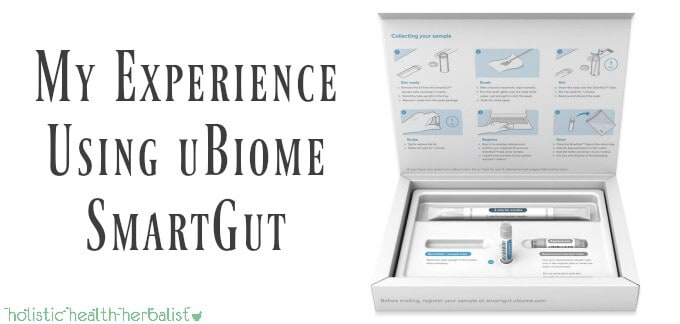
These last two years I’ve been delving into all manner of at home tests ranging from genetics and ancestry, fertility and thyroid health, and even hair mineral analysis. What I’ve found along the way has been insightful and empowering because for once in my life, I feel like I have a better understanding of what’s going on in my body.
However, there was one test I hadn’t tried, a gut health analysis test where I could see what types of bacteria live in my gut, their diversity, and what these bacteria mean for overall health and well-being.
Enter the uBiome SmartGut microbiome screening test!
My Experience Using uBiome
If you haven’t heard of uBiome’s SmartGut screening test, it’s the world’s first sequencing-based clinical microbiome screening test that detects both beneficial and pathogenic microorganisms associated with gut conditions like IBS, IBD, ulcerative colitis, and even Crohns disease.
The sample kit is mailed to your door, is easy to use, and samples are then sent back to be processed by a CLIA-certified and CAP-accredited lab using DNA sequencing. Your results are then compared to uBiome’s immense microbiome database which can give you insight how your diet affects the bacteria in your gut, the presence of specific pathogenic microorganisms that may be associated with illness, your current gut condition, your diversity score, and how the bacteria in your gut affects your everyday health.
I’ve had a long history of gut issues, so I was definitely interested to see what this test had to offer. I took the eligibility questionnaire, gave them my insurance info, and was readily accepted to receive my at-home SmartGut test.
The test arrived within a few days, and I was ready to get down to business and take my sample.
Doing this was surprisingly easy. Just make sure you read all of the instructions and have your kit ready to go when you “go.” All that’s left to do is go number two, swab your toilet paper, get your sample ready in the tube they provide, then send the test back and wait several weeks for your results to come in.
Why Test Your Gut?
Aside from the obvious "I want to know how to feel less bloated" etc., our gut health also has a vast impact on not only different aspects of our physical health, but our mental health as well.
Our gut is home to the enteric nervous system which makes up more than 100 million nerve cells that line the gastrointestinal tract. They help control circulation and digestive secretions in order to keep our digestive systems working optimally.
This "second nervous system" is now often referred to as the body's second brain - more commonly known as the gut-brain connection.
These nerves endings in the gastrointestinal tract are what allow the body to "feel" what's happening during the digestive process which is why our mood responds to digestion and vise versa.
If we eat while stressed, our digestive system gets completely out of whack, and we may feel like a stone is sitting in our stomach or may experience painful bloating.
Likewise, if we eat things we're allergic or intolerant to or eat food that cause inflammation within the body, our brains are then affected by the stress response in our digestive tract as it tries to digest those offending foods.
Having a healthy gut is paramount if you want a healthy mind just like it's essential to live as stress-free as possible in order to experience optimal digestion.
So, getting your gut tested is a great way to see where you need to make adjustments.
uBiome doesn't show you specifics as far as diet is concerned, for that you would need to take a food sensitivity test, but it does show you where imbalances lie in regards to healthy gut bacteria and your ability to digest and absorb nutrients.
Here are my uBiome results.
Very interesting indeed! I can clearly see which bacteria are below what is considered to be within a healthy range (the 99th percentile) and what those bacteria are associated with. Thankfully, I have none of the pathogenic bacteria for IBS, IBD, ulcerative colitis, or Crohn's disease which is great news!
I do, however, have some friendly bacteria inversely associated with Crohn's disease, ulcerative colitis, obesity, and kidney stones that could be within better range. My other levels of bacteria that are low have also given me more insight on why I feel easily bloated, constipated, and have abdominal tenderness. If I can elevate those levels a bit, it should help alleviate my symptoms.
The uBiome Explorer - My Bacteria
What's neat about uBiome is they have a feature called uBiome Explorer where you can further analyze your gut bacteria based on phylum, class, order, family, and genus. You can then hover over the names highlighted in blue to read more information about those bacteria and the role they play in our health.
Below are my personal microbiome charts
If the photos are too small, open them in a new tab to view a larger size.
Each of the pie charts below represents my unique gut biome.
I've also inserted a few blurbs about some of the bacteria found in each group as they're all pretty fascinating to learn about!
What's great about the explorer feature is you can hover over the names of the bacteria and get some more information on each one.
For example, Firmicutes are known to help us digest fats yet are associated with higher risk of obesity.
Bacteroidetes are the most prominent gut microbes and help protect us against obesity because they do not digest fat well.
The report goes on to say that proteobacteria are found in higher amounts in those with inflammatory bowel disease.
All in all, it's really interesting to read about each bacteria (though not all have descriptions since their database is still growing!).
Clostridia is often associated with Clostridium difficile, yet most clostridia bacteria is actually quite harmless!
Bacteroidia is associated with a lower risk of diabetes and a slender physique.
A healthy amount of negativicutes is an indication of having cavity-free teeth (which I can attest to!).
Burkholderiales are a type of bacteria known to protect us from kidney stones, especially the oxalobacter subtype which actually digests the compounds that form them. I know from my PDF report that I have lower than normal amounts of these little beasties, so it would be good to up them a bit.
Lactobacillales are known as the proverbial good bacteria! It was interesting to note that lower amounts of these bacteria are associated with autoimmune flare-ups. My levels are definitely low, and it now makes a bit more sense why my autoimmune issues have cropped up a bit more. Topping up my levels sure wouldn't hurt!
Ruminococcaceae are the microbes that break down complex carbs and are most common in those who eat high-carb diets.
Streptococcaceae is one of the most common microbes in our small intestines and help us digest the food we eat. They're also commonly used to make cheese!
Prevotellaceae are most prevalent in the gut of those who eat low animal fats and higher amounts of carbs, most often in vegetarians.
This last list was a bit mind-boggling, but it was still interesting to see the diversity of these bacteria in my gut.
Rosburia helps us digest the complex carbs found in whole grains and act as an anti-inflammatory in the gut.
Butyrivibrio helps us break down and process complex sugars. Certain strains can even mediate the immune system!
uBiome Explorer Insights
This next section goes over how my bacteria impacts my weight and which bacteria are known to combat obesity in comparison to other samples in uBiome's database. It was really interesting to see how low my akkermansia bacteria are! But it was also helpful that uBiome provides tips and suggestions for naturally upping those levels.
This section below shows how lacking my gut biome is in the lactobacillus department. I had no idea that my levels were so low considering my diet. It seems like I will need to incorporate a bit more kefir into my daily diet or take a probiotic to see if that ups my levels.
The report goes on to show what percentile I'm in which isn't too bad but could be better. It looks like I'm in the 66th percentile in comparison to healthy samples.
This last section shows which gut bacteria I have that is less common among the samples taken in uBiome's database.
uBiome then suggests I take a probiotic with the following bacteria since they consider my levels low in comparison to healthy samples:
Bifidobacterium animalis
Bifidobacterium bifidum
Enterococcus italicus
Lactobacillus brevis
Lactobacillus helveticus
Paenibacillus apiarius
And lastly, my explorer report can show me what my gut bacteria look like in comparison to many different diets (or things that affect diet) like veganism, raw food, pescetarian, vegetarian, paleo, omnivore, gluten-free, dairy-free, low-carb, heavy drinkers, antibiotics, etc. which is really neat to see! The lists are extensive, so I won't post the screenshots here. It's interesting to note how different diets change the microbiome, especially more plant-based diets.
In conclusion, I really enjoyed learning more about my gut bacteria and where my levels are in comparison to healthy people. I now know which bacteria need more attention to help alleviate my digestive issues.
So, would I recommend using uBiome? Absolutely! Have you ever used uBiome before?
Interested in trying uBiome for yourself? Check it out here.
You may also enjoy reading:
8 Amazing Home Remedies for Nausea
How to Relieve Gas- The Herbalist’s Way
The Best Home Remedies for Constipation
The Best Anti-Bloat Essential Oils and How to Use Them!
Essential Oils for Digestion


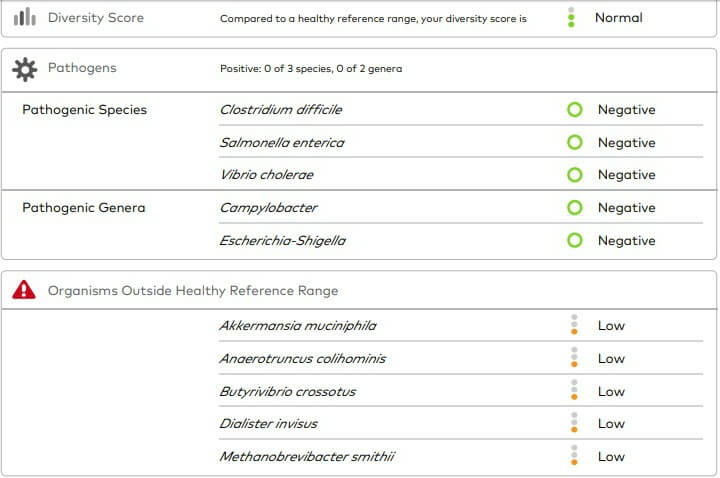

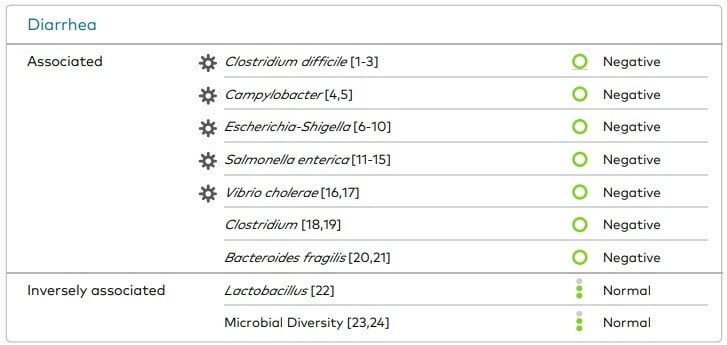
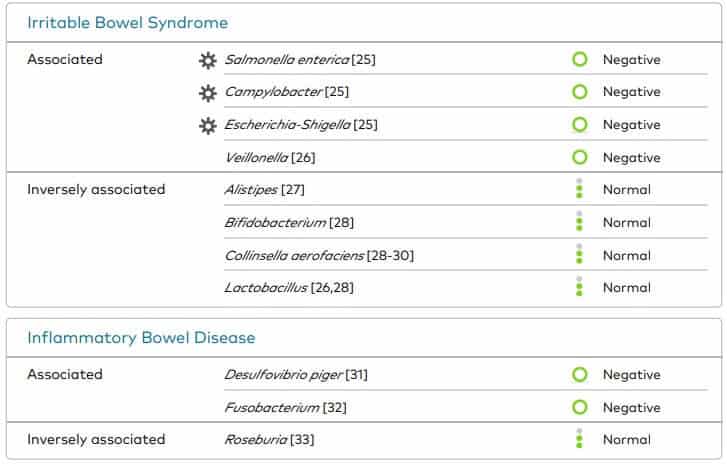
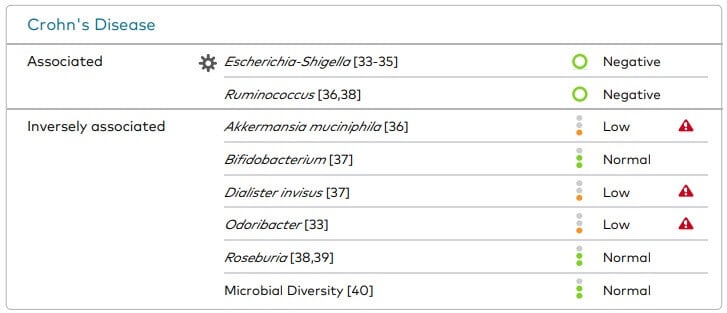
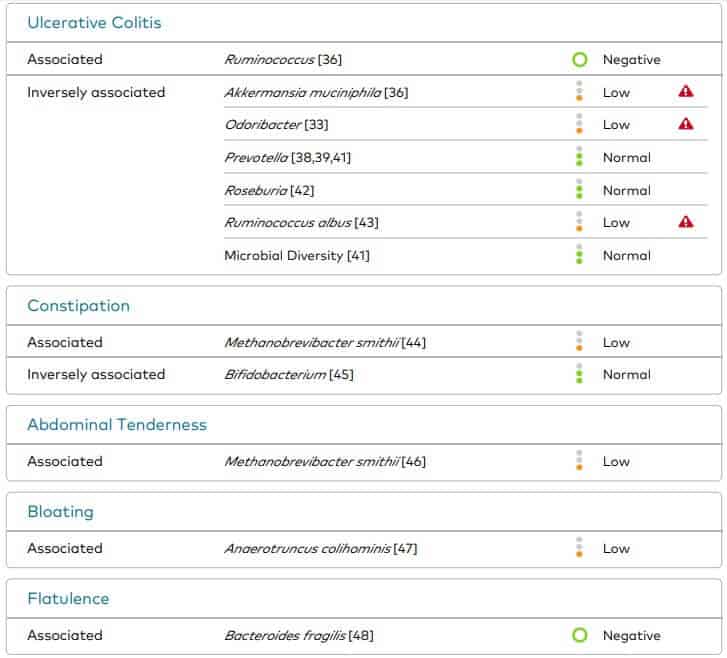
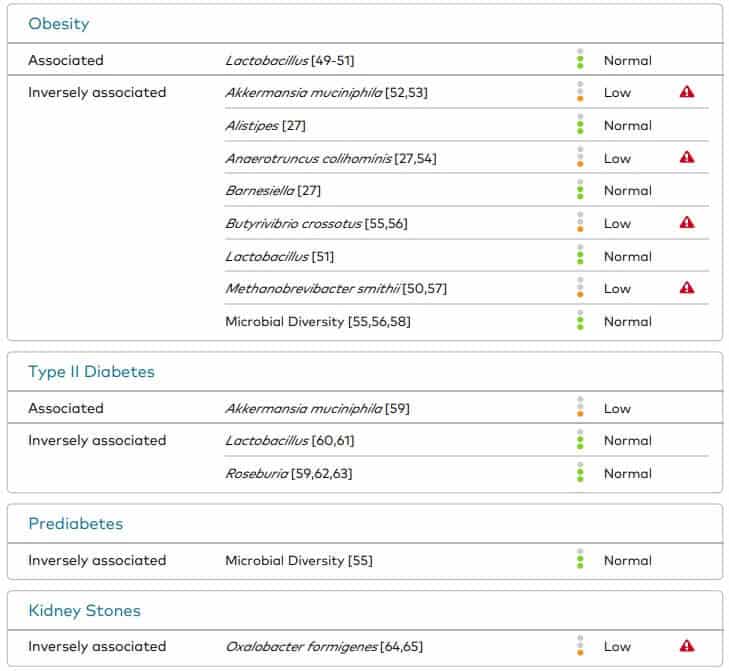
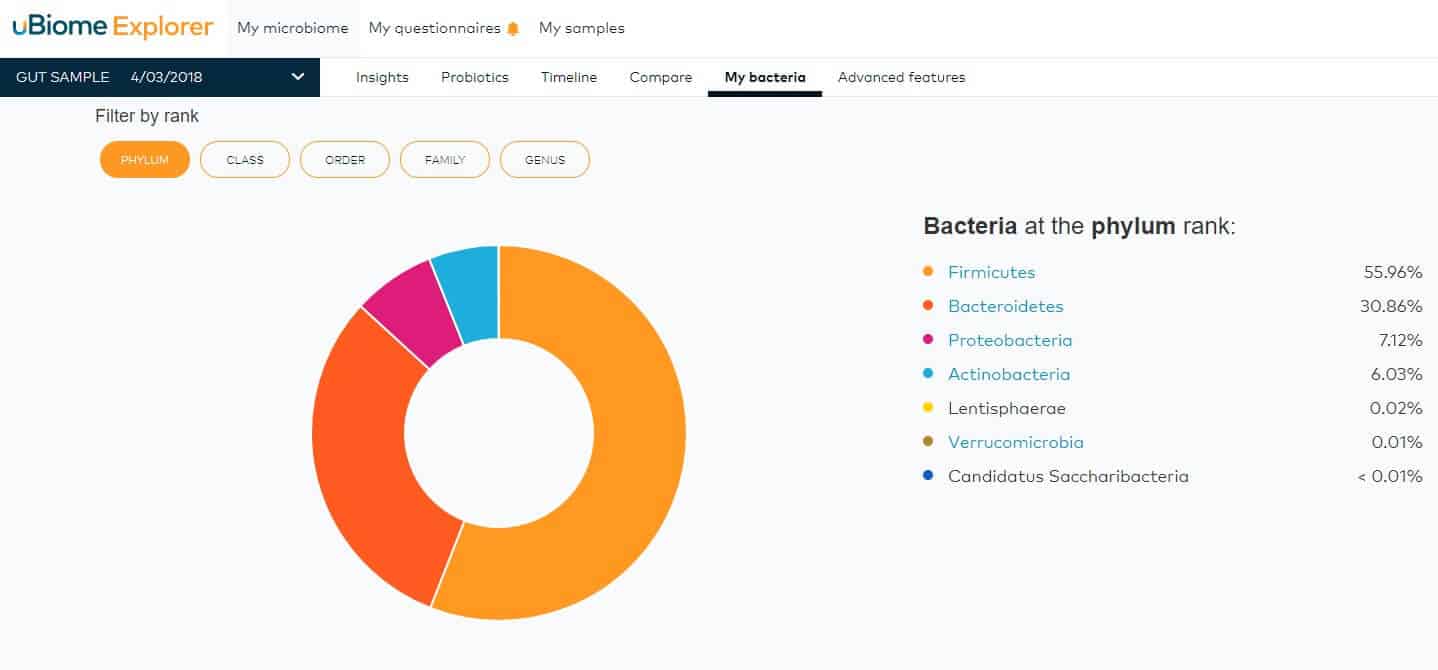
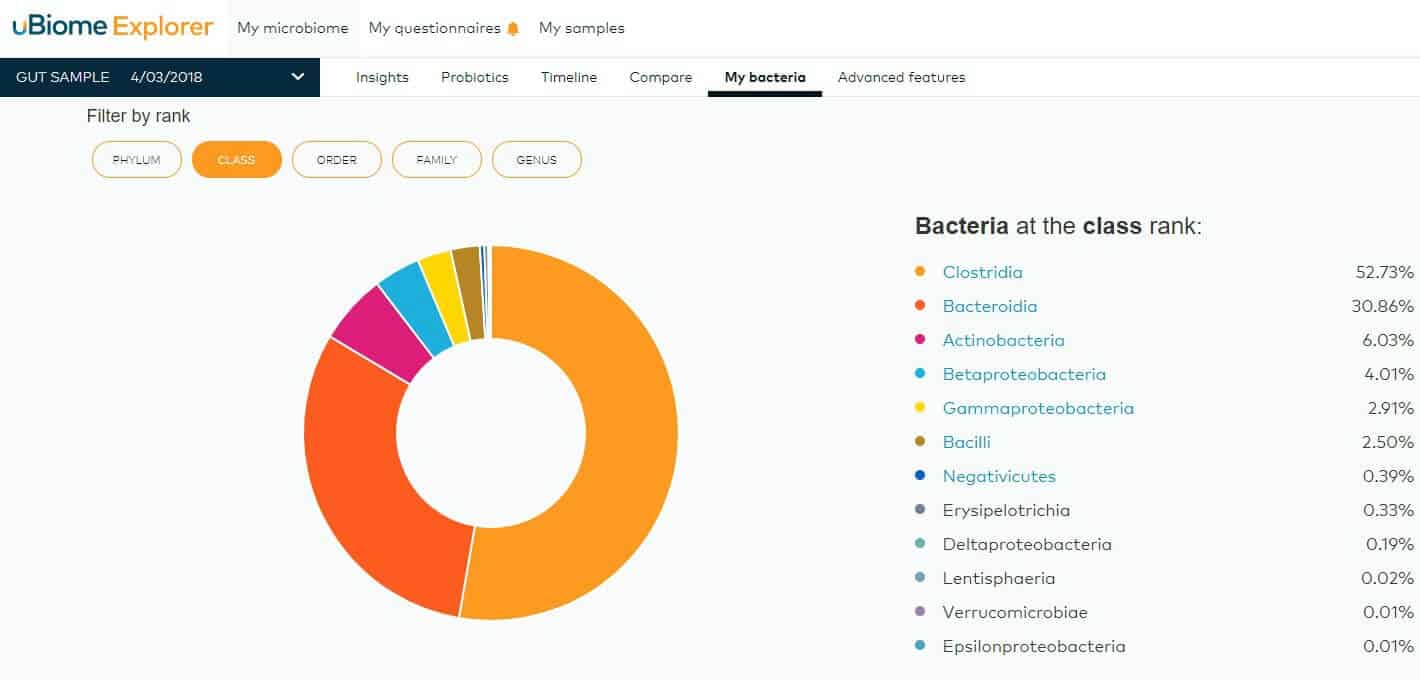
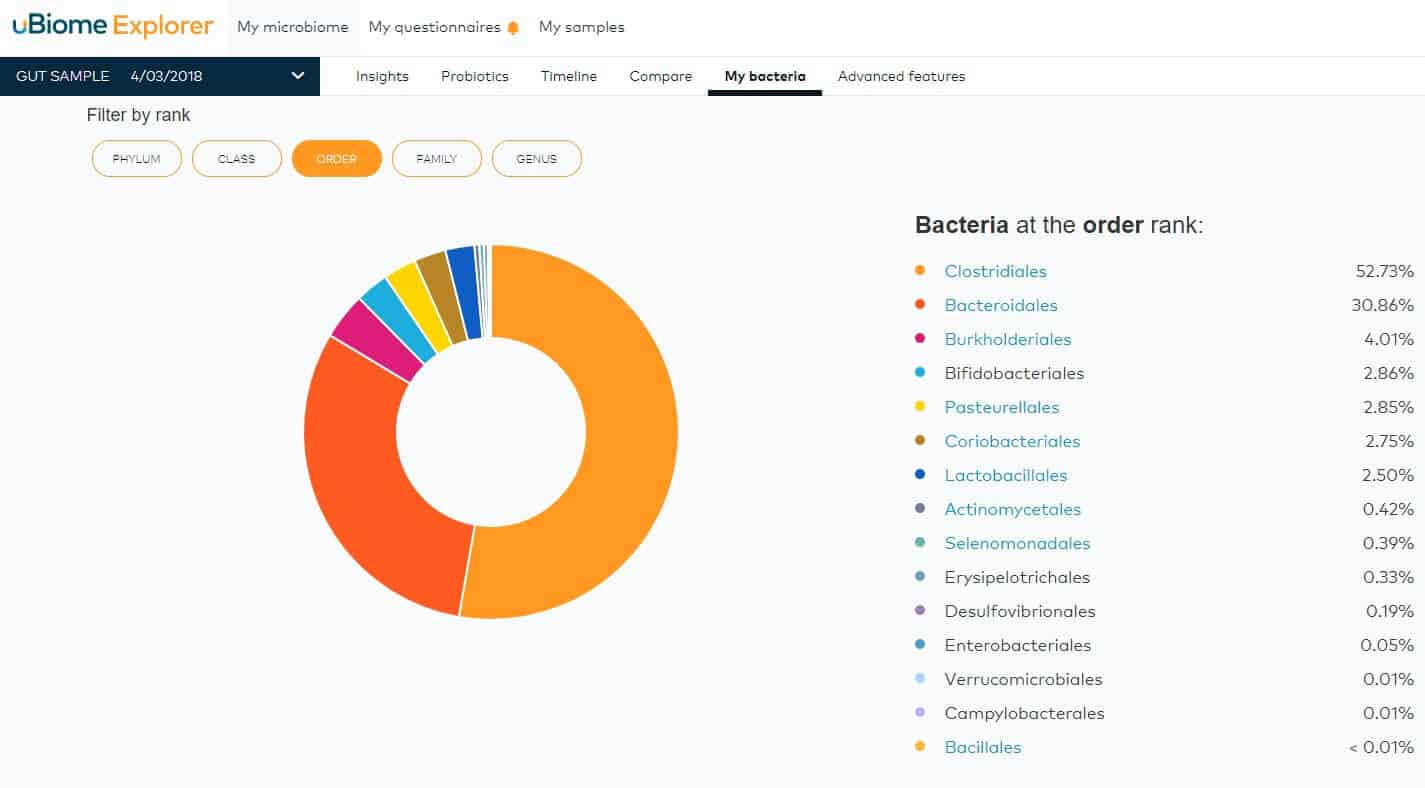
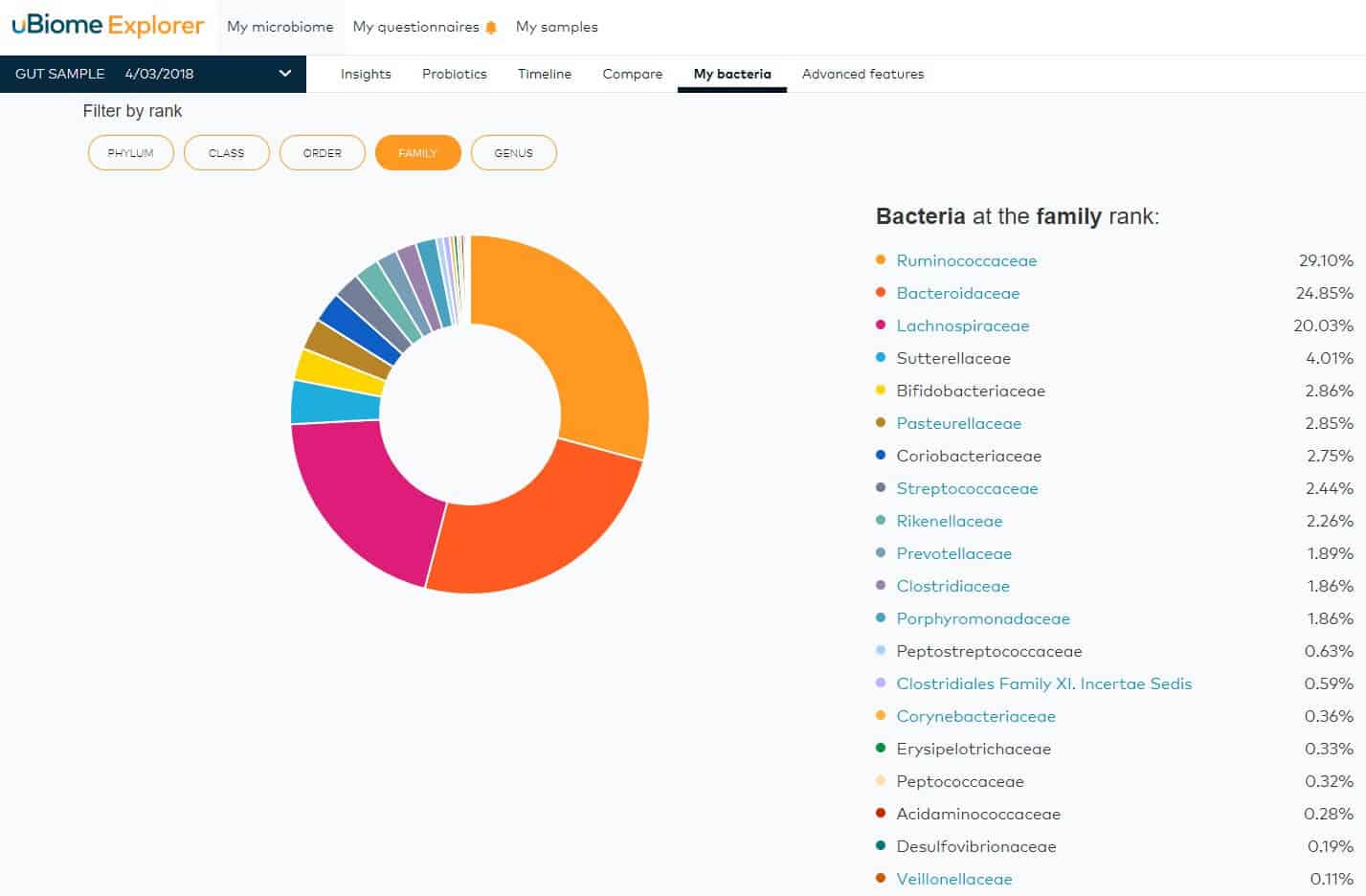

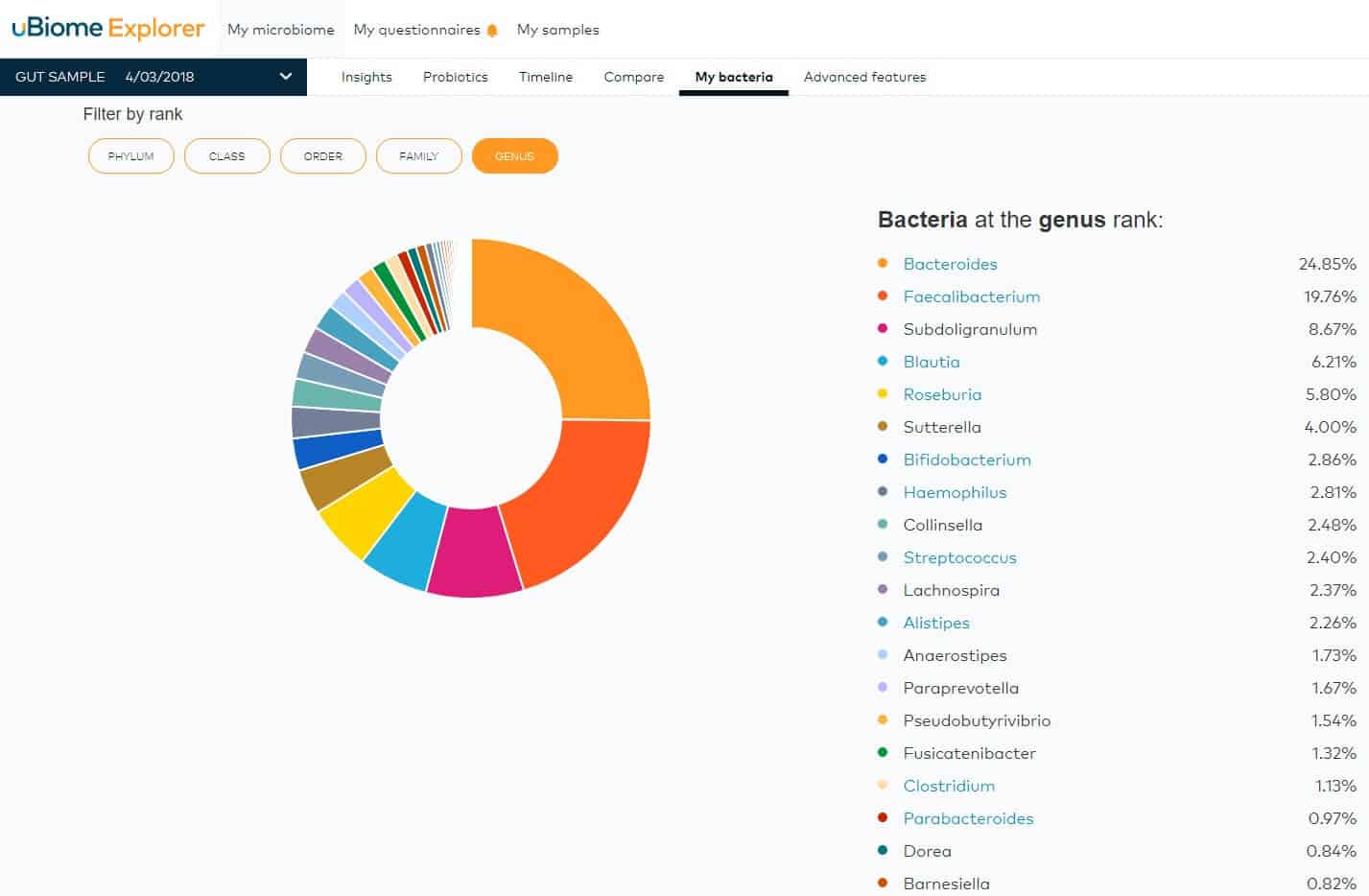

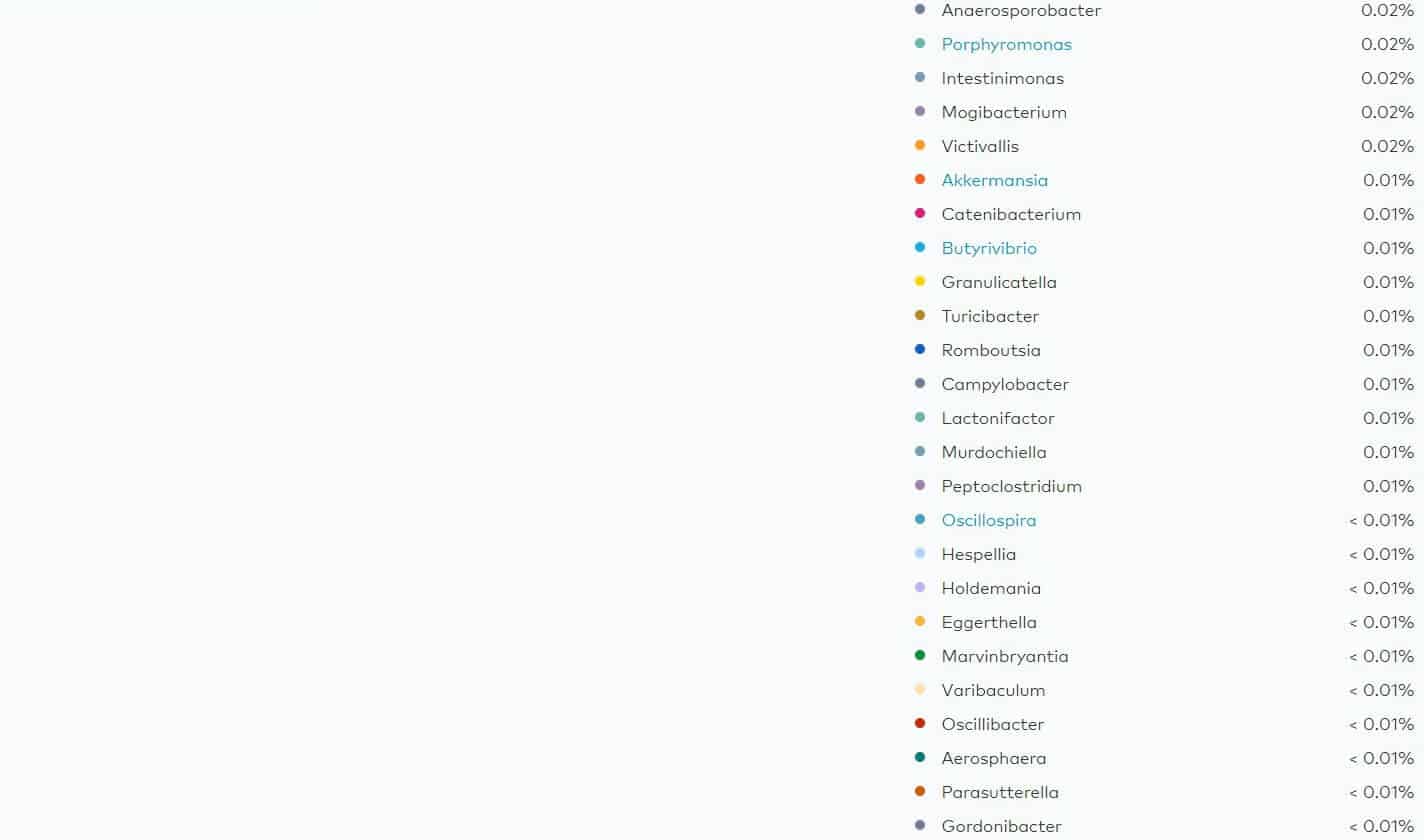

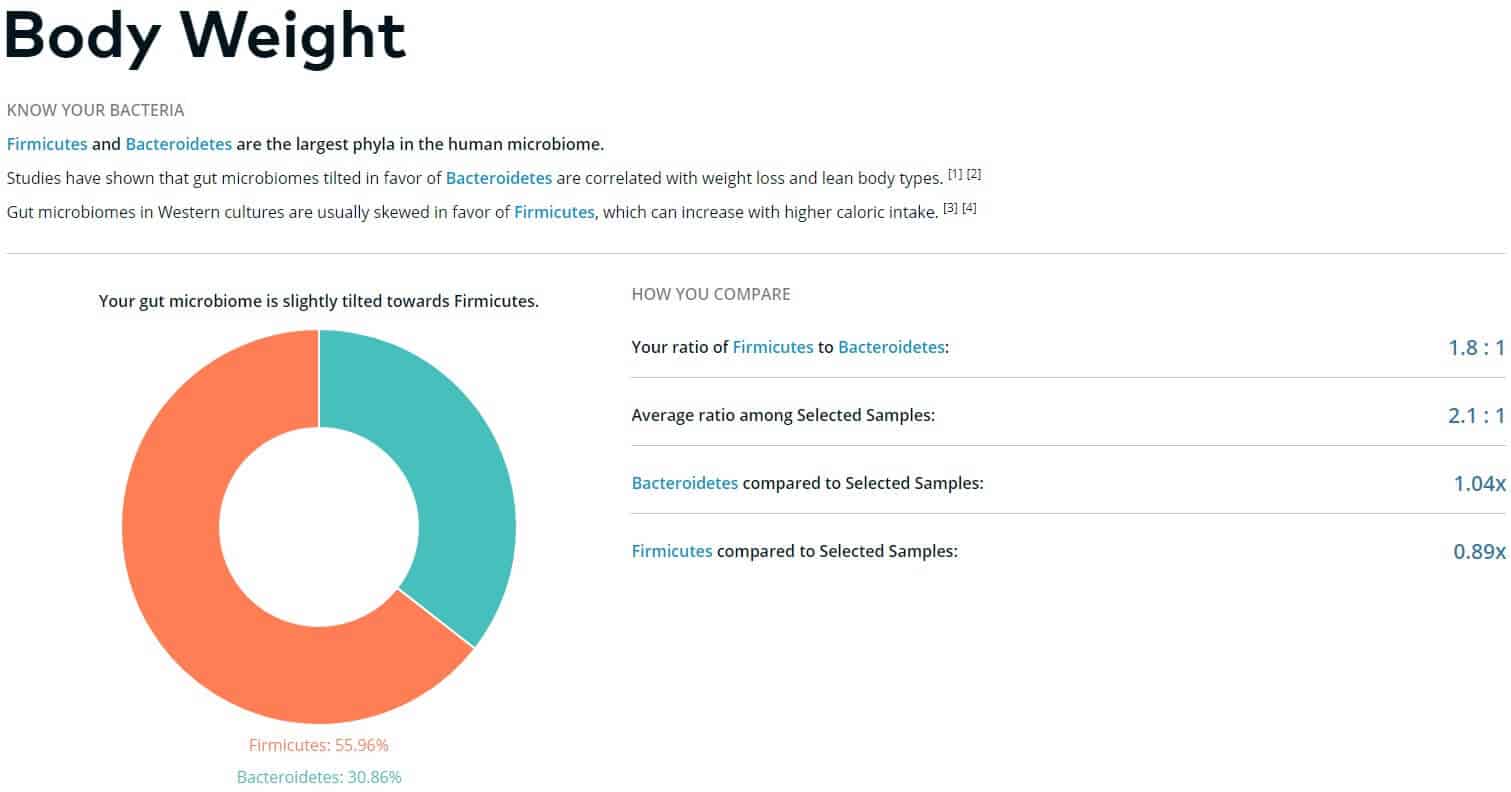
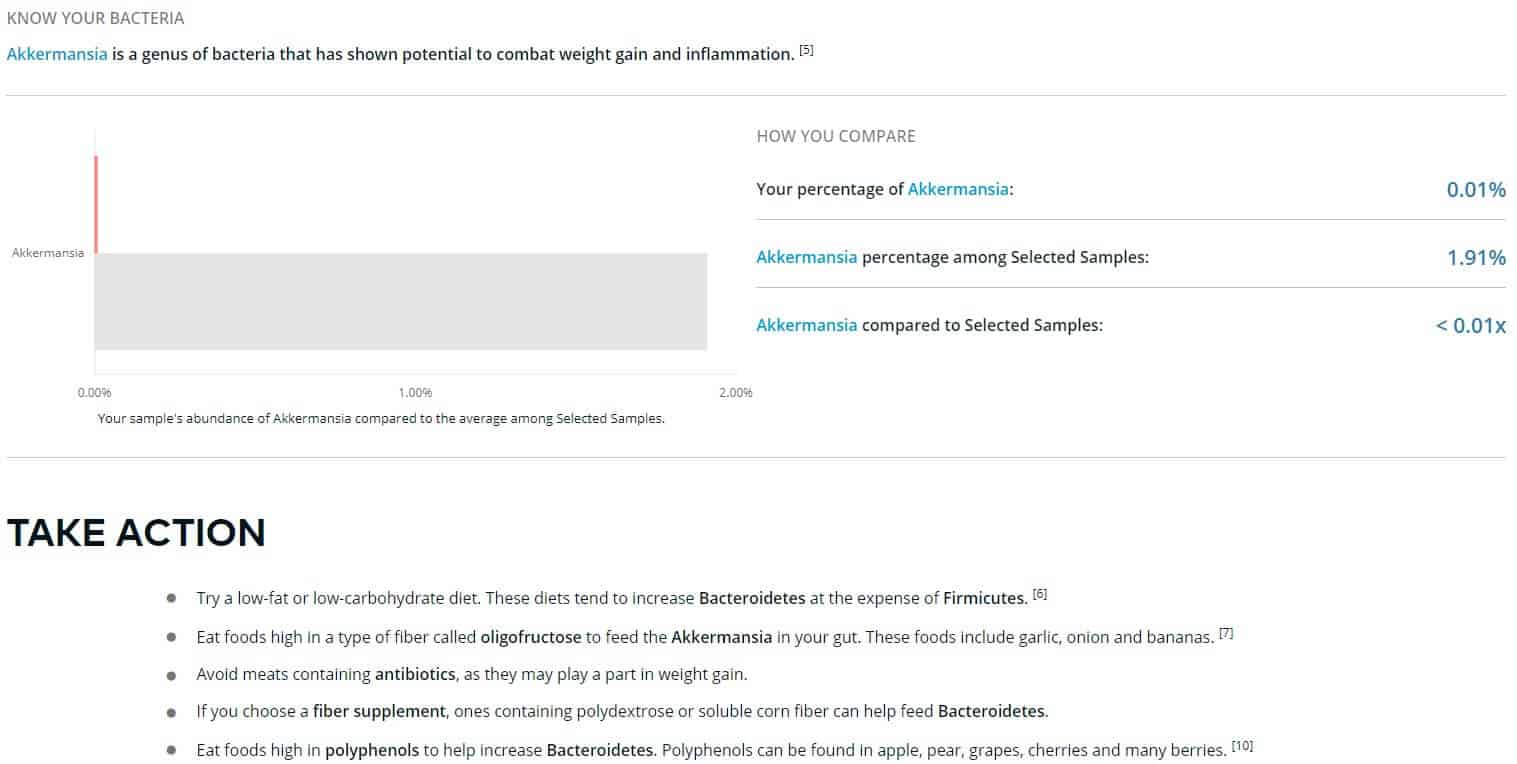
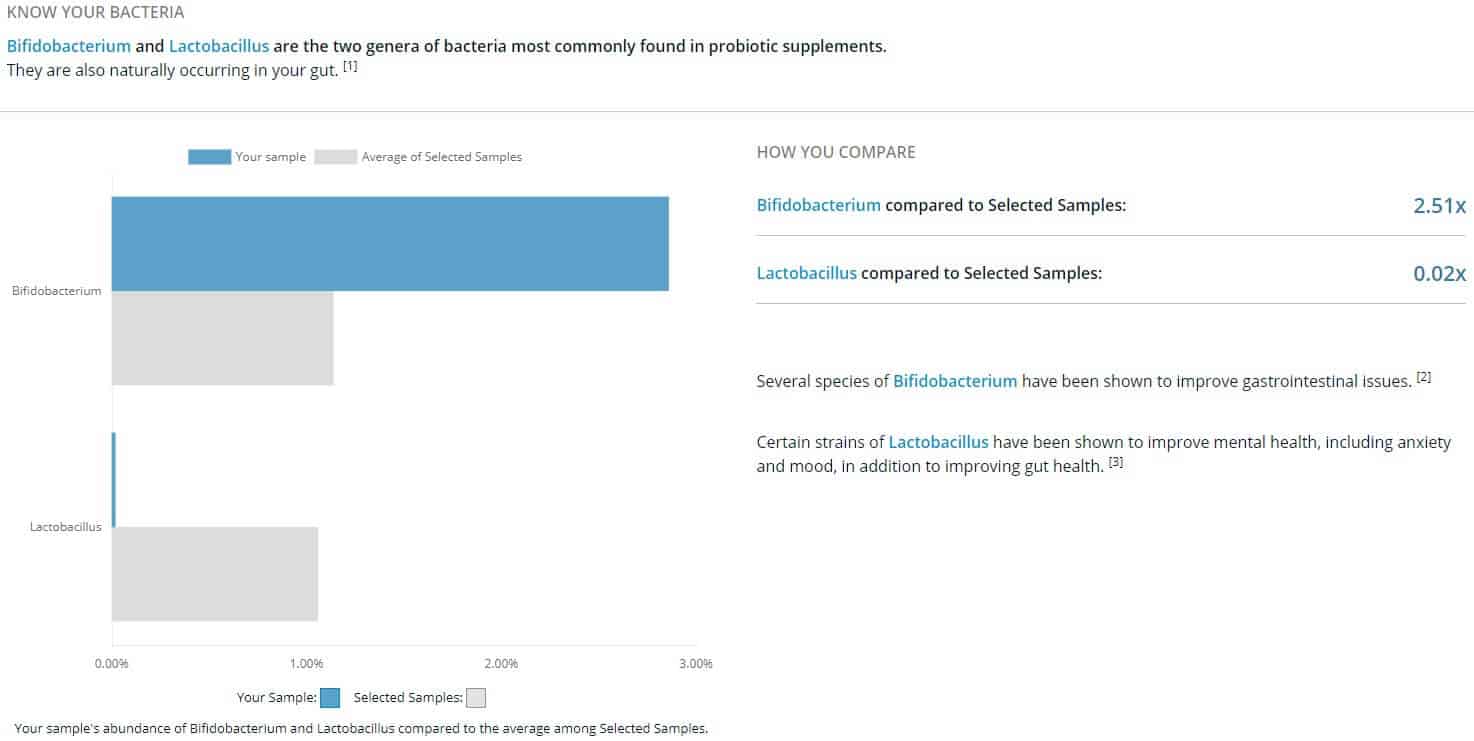
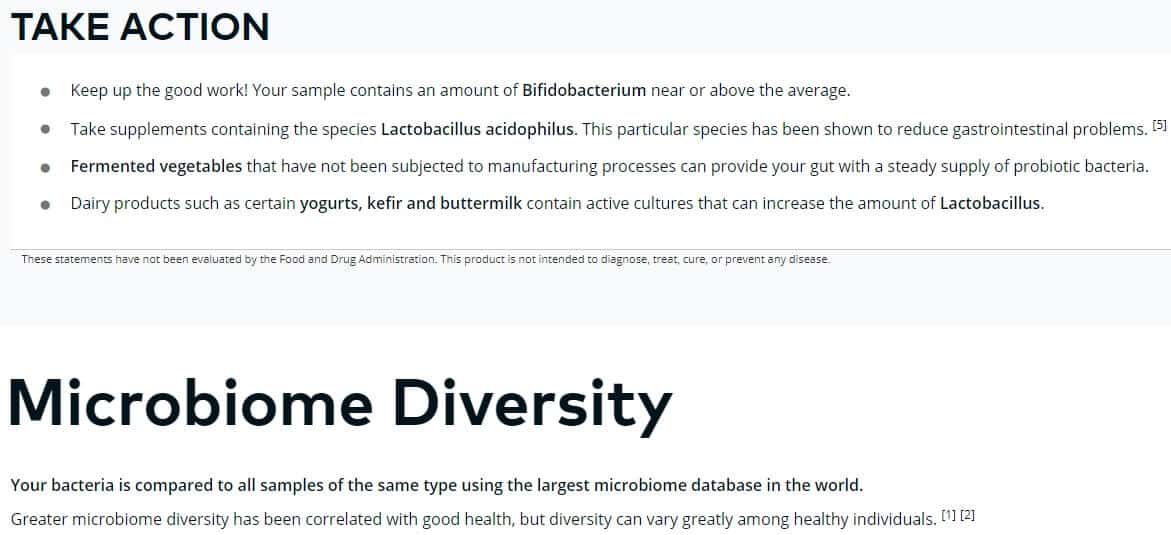
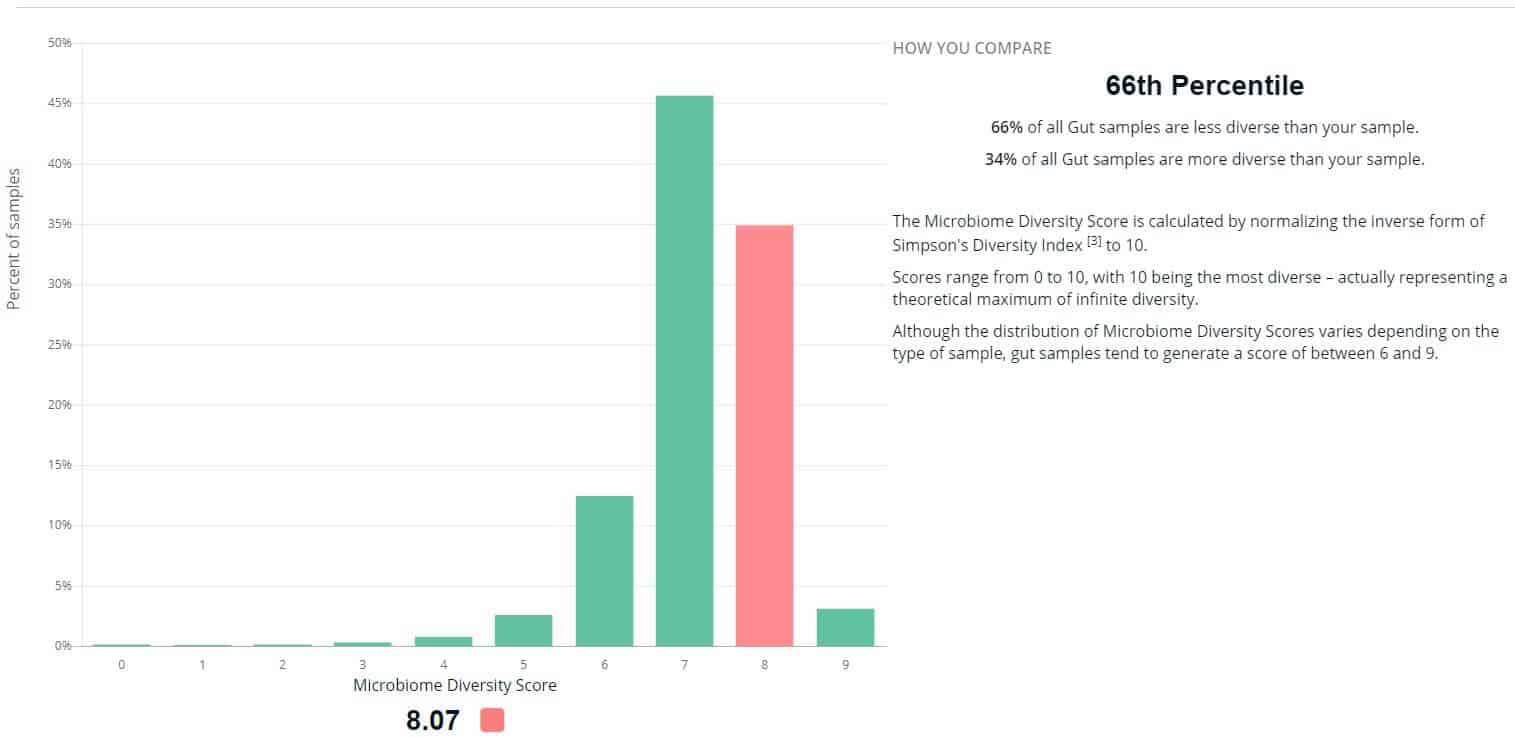
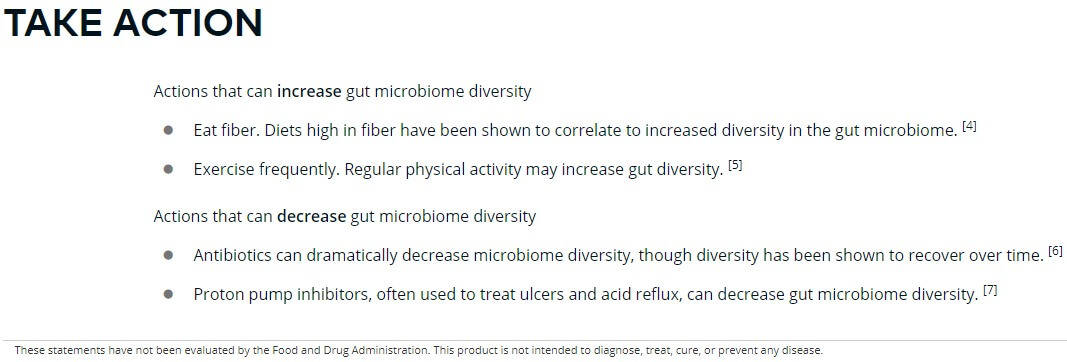
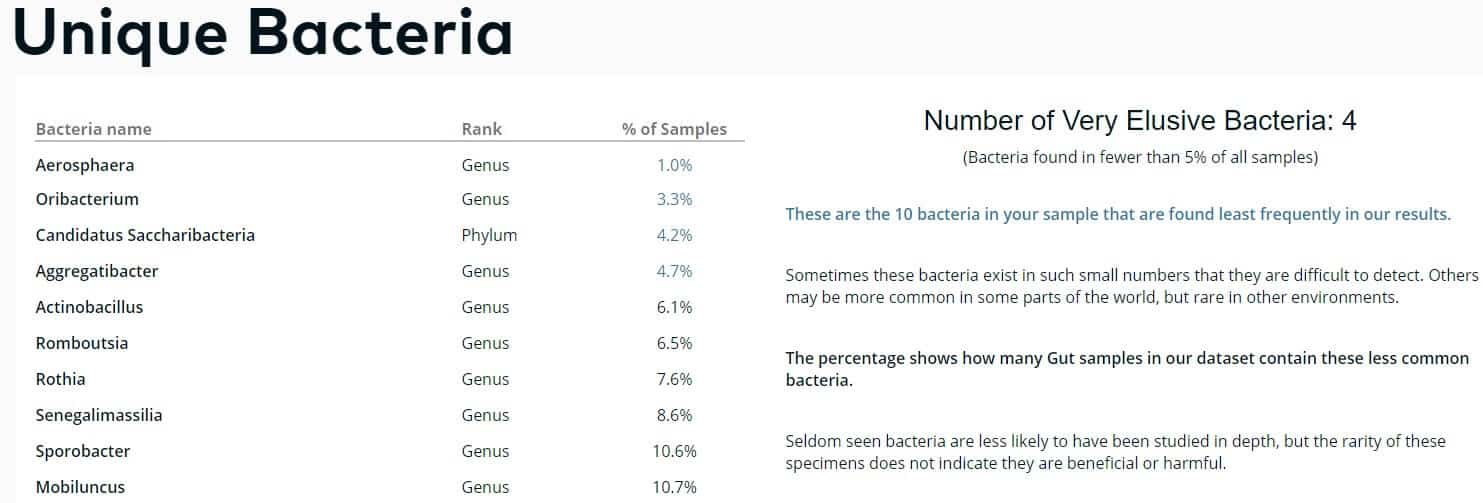
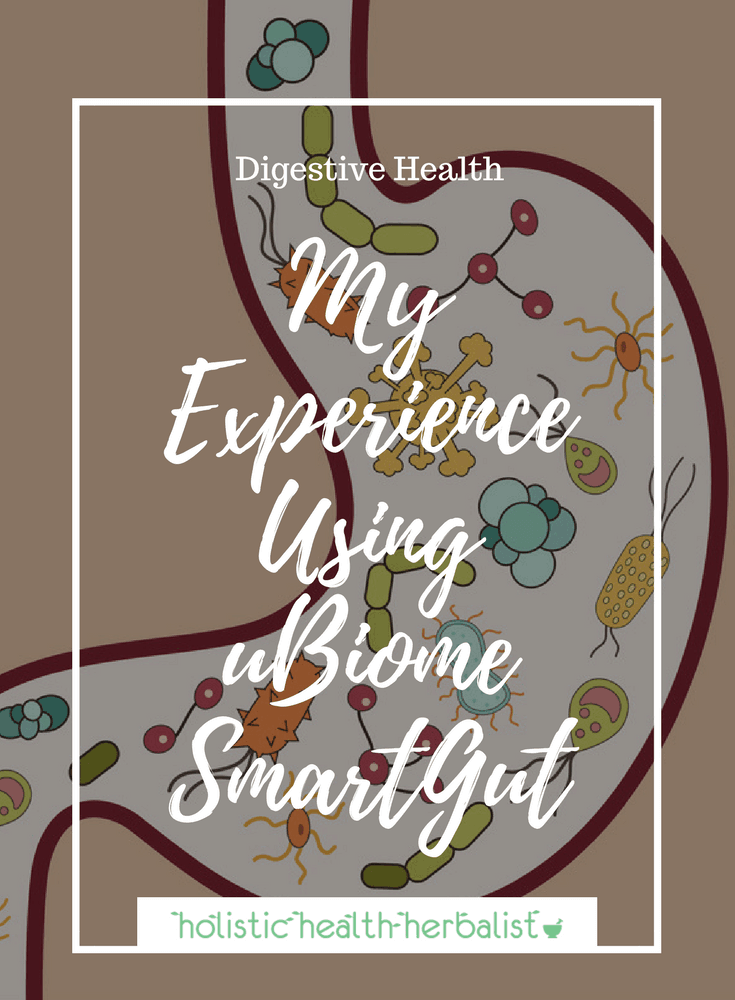



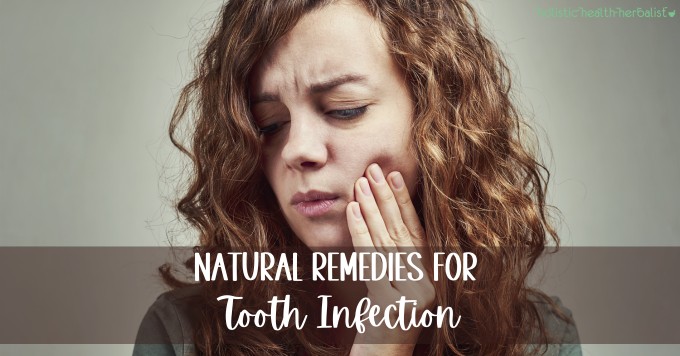
Jamie says
I'm curious how long the process took. I apologize if I have hap-hazardly missed that in your narrative. I chose the explorer kit and sent it in at the end of December 2018. I imagine it takes sometime to either grown the bacteria and/or sequence it. Today's February 13, 2019 and I thought I'd do a little investigating on that question. Saw your report on it and thought you might be a good person to ask. Do you recall how long it took to get your results back?
Tash says
It took like two months to get results so hang tight! I will also mention that if you choose to "upgrade" at any point (for example, they had the option to check for yeast most recently) that they will charge you for it through your insurance. So just an FYI.
Cristina says
Tge ubiome suggestion to increase your bacterias is wrong. the probiotics will leave your system after a week. im not sure why tgey give bad advice. yiu need to use prebiotic like foods and prebiotics. For example for Akkremensia: red polephynos:red rice,rasberry,dragon fruit. Prebiotic supplementation is of 3 kinds. yiu need to use the one you tolerate. One tyoe is lactulose. another is inulin.these will increase your population for good. i learned it from a microbiologyst.
Tash says
Wow! Thanks for the heads up Cristina! I will definitely look into this.
Marian says
Good to know. From what I have heard this is the case. When we take probiotics they are gone in a week or two so we have to keep taking them. If we do prebiotics then we start a colony of those bacteria and they will keep multiplying themselves. I believe this is the case. I am no scientist!